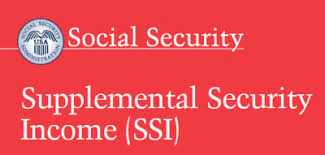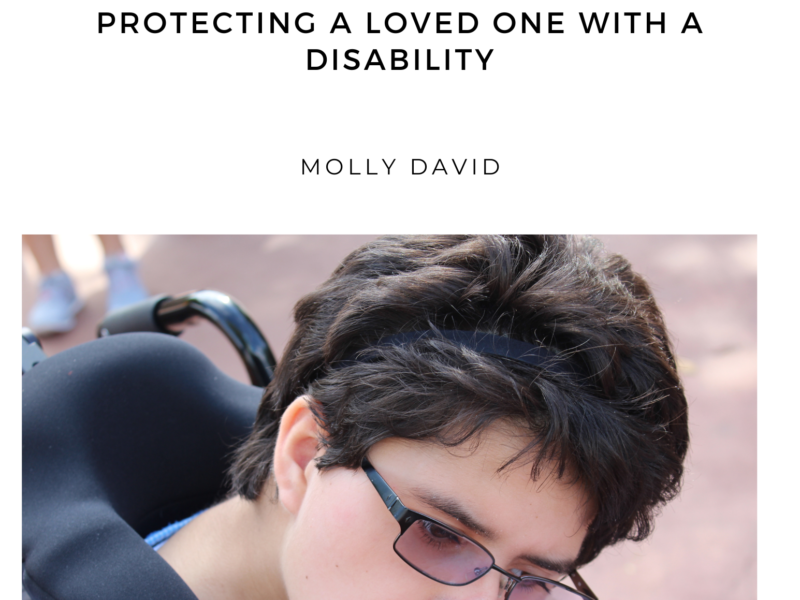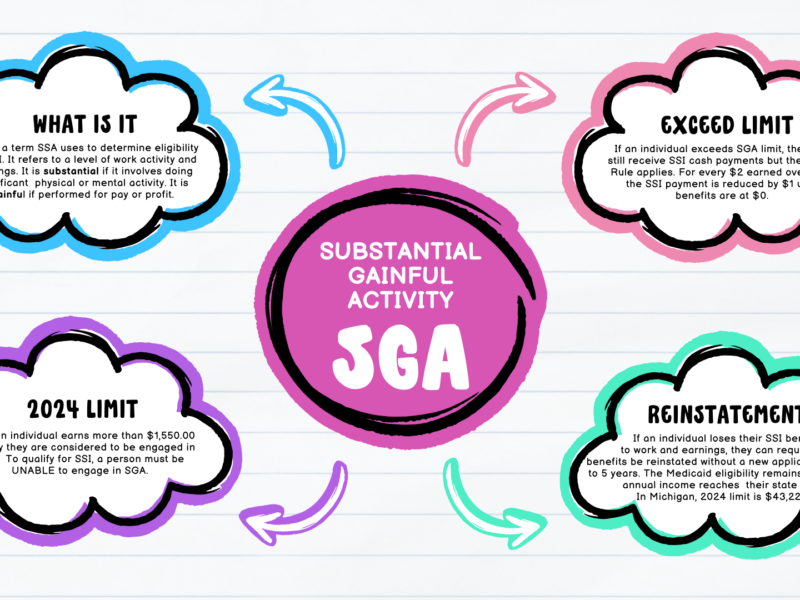A representative payee is a person who manages SSI payments on behalf of a beneficiary. This means they can receive cash benefits and have the authority to use the money on the beneficiary’s behalf.
Category: SSI

What Is SSI? Supplemental Security Income (SSI) is a government program that provides monthly benefits (monetary payments and insurance) to people with disabilities or who are over 65 with limited or no income to help them meet their basic needs, like food and shelter. SSI is a federal program, but the states administer it. States have the option of providing additional funds and/or automatic health insurance through Medicaid. To qualify, the person applying must have

I am often asked about Social Security Disability Insurance (SSDI) when I present on Supplemental Security Income (SSI). Most families I speak to will deal with SSI first, so I don’t discuss SSDI other than to tell them it exists. Lately, I have been receiving more questions from parents about SSDI qualification for their adult disabled child when they retire. The Social Security Administration (SSA) can be very complicated and confusing. Although they have different

I often get asked about insurance policies when I speak about planning for a child with a disability. There is a lot that is confusing about helping your developmentally disabled child apply for SSI at age 18. Since you need to ensure the protection (exclusion as a resource) of all assets and resources in your child’s name by age 15, it is important to understand how a policy could affect the application for SSI. The

Purchase “Planning for the Future: Protecting a Loved One with a Disability” on Amazon.

Understanding the Relationship Between the Debt Ceiling and SSI Payments The debt ceiling can have significant impacts on the Social Security Income (SSI) program. Debt Ceiling: What is it? The debt ceiling is the maximum amount of money that the government can borrow to pay its outstanding bills and other financial obligations. Essentially, it sets a limit on how much money the government can borrow to cover its expenses. Failure to raise the debt ceiling

Information for parents of disabled people transitioning into adulthood. Supplemental Security Income (SSI) is a government program that provides monthly income to people with disabilities (or who are over 65) with limited or no income to help them meet their basic needs, like food and shelter. SSI is a federal program but the states administer it. States have the option of providing additional funds and/or automatic health insurance through Medicaid. To qualify, the person applying

And how the government could make it easier There are many barriers for people with a disability and they are not all physical. There is an economic cost to having a disability that needs to be recognized. We expect that individuals with a disability will have higher healthcare costs and needs, but we overlook all the “extra” costs. These costs often force people living with a disability to choose between their independence and their government

According to Assistive Technology Industry Association (ATIA): Assistive technology (AT) is any item, piece of equipment, software program, or product system that is used to increase, maintain, or improve the functional capabilities of persons with disabilities. These allow people with disabilities to have more independent and active lives. Some examples are positioning equipment, bed rails, bolsters, pillows, wedges, dressing aids, scooters, talking alarms, communication boards, and specialty switches. Anything that helps someone with a disability

